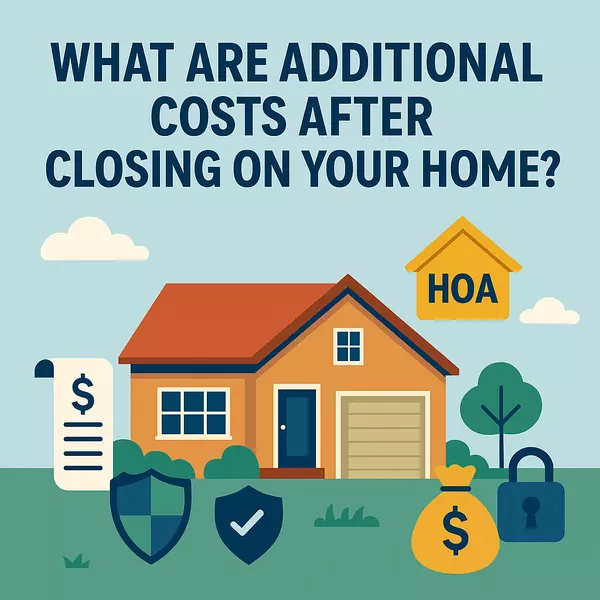Divorce Refinance: How to Navigate Your Home Loan During a Divorce

Divorce Refinance: How to Navigate Your Home Loan During a Divorce
Divorce is a challenging time, and one of the most significant financial decisions you may face is what to do with your home. If you and your spouse own a home together, divorce refinance can provide a solution that allows one party to retain ownership while removing the other from the mortgage. Understanding your options is crucial to making an informed decision that benefits your financial future.
What Is Divorce Refinance?
Divorce refinance is the process of refinancing a jointly owned home into the name of one spouse after a divorce. This ensures that the departing spouse is no longer financially responsible for the mortgage and helps the remaining spouse take sole ownership of the property. The refinance process typically involves securing a new loan in one person's name and using the proceeds to pay off the existing joint mortgage.
Benefits of Refinancing After Divorce
1. Remove Your Ex-Spouse from the Mortgage
A standard mortgage does not automatically remove a spouse’s name after a divorce. Refinancing is the best way to ensure only one party remains financially liable.
2. Secure Better Loan Terms
Refinancing can provide an opportunity to secure better interest rates, lower monthly payments, or a more favorable loan structure.
3. Access Equity for Buyouts
If one spouse wants to keep the home but needs to buy out the other’s equity share, a cash-out refinance can provide the necessary funds.
4. Improve Financial Stability
Post-divorce, refinancing can help you manage your finances better by ensuring you have a mortgage that aligns with your new financial situation.
How to Qualify for a Divorce Refinance
To qualify for a mortgage refinance after a divorce, lenders will evaluate several key factors:
1. Credit Score
A strong credit score improves your chances of qualifying for a refinance with competitive rates. If your credit has taken a hit, consider improving it before applying.
2. Income and Employment Stability
Lenders will assess your income and employment history to determine your ability to afford the new loan on your own.
3. Debt-to-Income Ratio (DTI)
Your DTI measures how much of your income goes toward debt payments. Lower DTI ratios increase your chances of approval.
4. Home Equity
The amount of equity in your home affects your refinancing options. If equity is low, additional funds may be required to close the refinance.
Divorce Refinance Options
1. Rate-and-Term Refinance
This option allows you to refinance your mortgage with a new interest rate and term without taking out additional cash.
2. Cash-Out Refinance
A cash-out refinance lets you borrow more than your existing mortgage balance, using the home’s equity to pay out your spouse’s share.
3. FHA, VA, and Conventional Loan Refinancing
Depending on your financial situation, you may qualify for government-backed programs such as FHA and VA refinances, or you may opt for a conventional loan refinance.
Steps to Refinance After Divorce
-
Check Your Credit and Financial Standing – Review your credit report and ensure you meet lender requirements.
-
Determine Loan Eligibility – Speak with a mortgage professional to assess your refinance options.
-
Get a Home Appraisal – An appraisal determines your home's current value, which affects your loan amount.
-
Apply for the New Loan – Submit your mortgage refinance application along with required financial documents.
-
Close the Loan and Finalize Ownership Transfer – Once approved, the new loan pays off the existing mortgage, and the departing spouse is removed from the title.
Work with an Experienced Mortgage Professional
Divorce refinance can be a complex process, but working with an experienced loan officer ensures a smooth transition. If you need assistance navigating your refinance options, contact Glenda Lee, a trusted mortgage expert specializing in divorce refinances. With expertise in FHA, VA, conventional loans, and down payment assistance programs, she can help you find the best refinancing solution to secure your financial future.
Get Started Today
If you’re considering refinancing your home after a divorce, reach out to Glenda Lee for expert guidance. She provides tailored mortgage solutions to help you transition smoothly and protect your homeownership goals.
Contact Glenda Lee Today!
by calling 321-689-2420.
Categories
- All Blogs (29)
- 32826 (1)
- Best Deal (2)
- Black Friday (1)
- Builder (2)
- Buy In Orlando (2)
- Buyers (5)
- COVID-19 (1)
- Divorce (1)
- Down Payment (5)
- Earnest Money Deposit (1)
- EMD (1)
- Experienced Loan Officer (1)
- Extra money, Making Money, Money, (2)
- Financing & Loans (1)
- First Homebuyer (4)
- First Time Home Buyers (13)
- Florida (9)
- Florida Market (1)
- Get Pre Approved (2)
- Hiring A Realtor (1)
- Home Buying (1)
- Home Buying Tips (1)
- House (6)
- Housing (2)
- How To (3)
- Interest Rate (1)
- List my Home (2)
- Listing (1)
- Loan (1)
- Loan Officer (3)
- Market Insight (1)
- Money (1)
- Mortgage (3)
- Mortgage Education (1)
- New Construction (1)
- Orange County Down Payment Assistant (1)
- Owning A House (3)
- Preapproved (4)
- property tax (1)
- Purchasing First Home (4)
- Real Estate (6)
- Real Estate Advice (1)
- Real Estate Agent (2)
- Realtor (3)
- Refinance (2)
- Savings (1)
- Sell My Home (1)
- Visit Orlando (1)
Recent Posts










GET MORE INFORMATION


